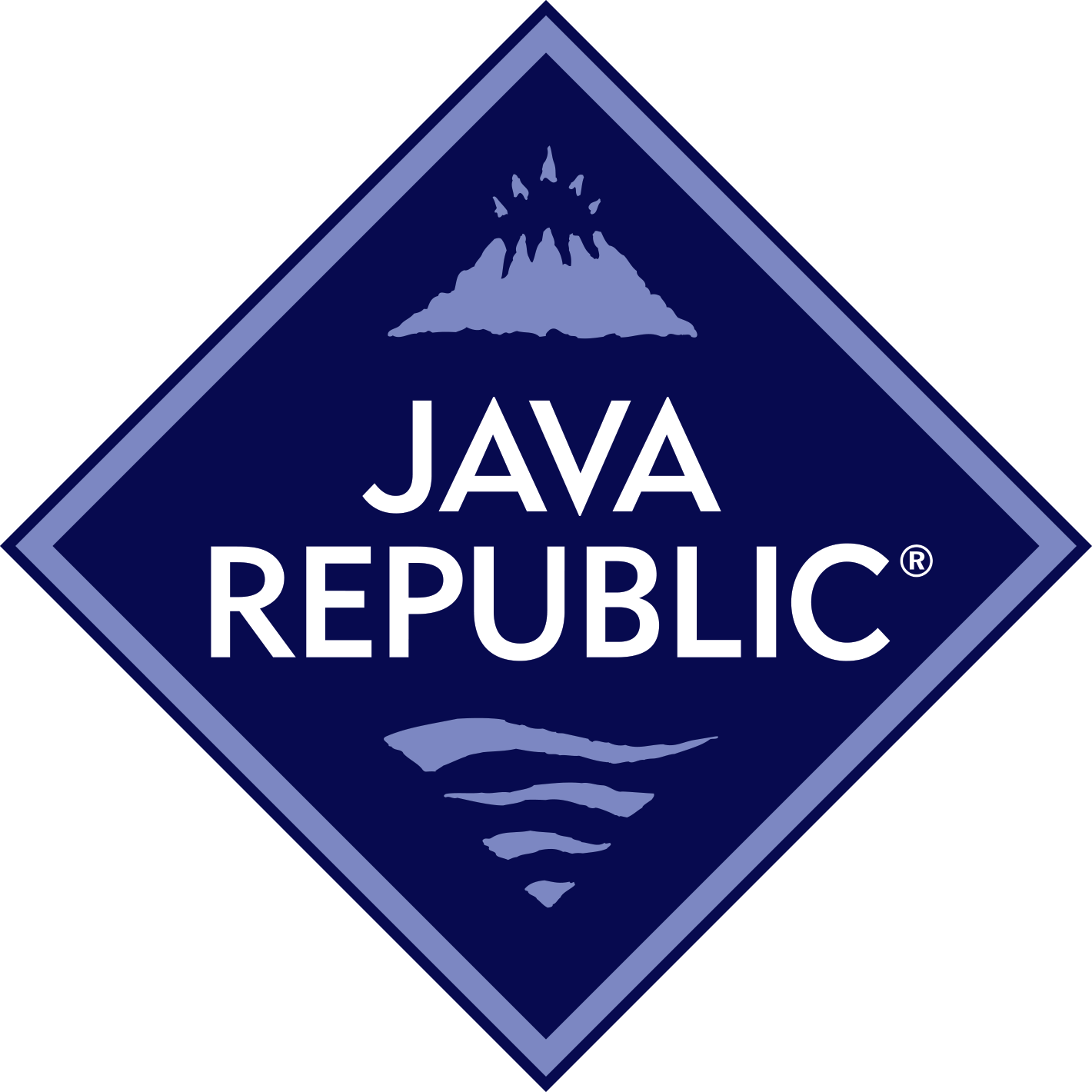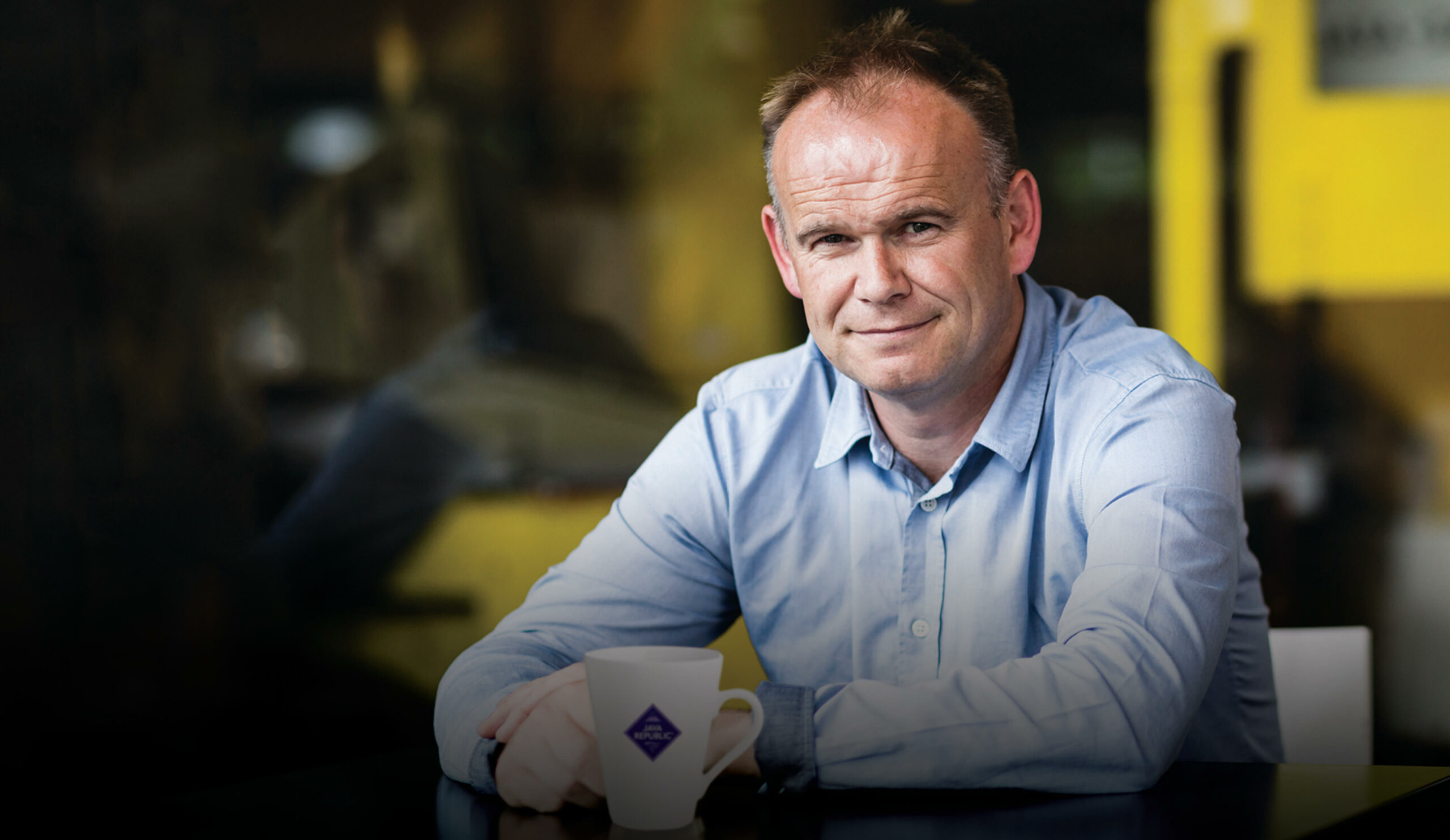The Journey of Java Republic
In the 1990s, I may have been taking my pay check from Bewleys, but I was beginning to dream of my own coffee business. What became Java Republic was a product of my own experiences and the expertise provided by some really smart, generous people. This story talks about these people, and gives them the credit that is deservedly due.
The spark was first lit for me when I persuaded Bewleys to introduce an espresso-based coffee service called Caffe La Scala. To show us what we should be doing, I brought over David Schomer of Espresso Vivace in Seattle. He was a true innovator – a prophet who led the way in the “second wave” of coffee, and a wizard with a steam wand. David essentially invented latte art, and created a tidal wave of change with just three cafés. We didn’t get on, but I recognised genius when I saw it – so I stayed in touch.
His was one of a number of great connections I made when exploring the US west coast coffee scene in the nineties. Although the Italians invented espresso at the start of the 20th century, it was Americans who super-charged the business model with marketing and product presentation nearly 100 years later.
One of the key figures in the west coast scene was Jerry Baldwin. He was a founder of Starbucks. If Howard Schultz gets the credit for scaling the brand success of Starbucks, Jerry was the curator of their coffee quality. He recognised Alfred Peet as the originator of west coast coffee, and he commissioned Peets to roast Starbucks coffee in those early years. When Starbucks took off, Jerry used his newfound wealth to buy Peets – as he recognised their true authenticity and quality. Both Jerry Baldwin and David Schomer were to play key roles in showing me the potential for what Java Republic was to become. More importantly, they were generous to a fault in offering time and expertise to a tiny business on the other side of the world.
In 1998, I started to turn my west coast coffee research into a business plan. I worked with Brendan Donlon to create the Java Republic brand as the keystone of this plan. I’m no Howard Schultz, but it was clear to me that the coffee businesses taking over the world were as much about brand as they were about coffee.
In September 1999, Java Republic started trading. I have been asked too many times; how hard was it? Was your house on the line? How close to bust were you? Did you ever run out of money to pay wages? We sailed very close to the edge – and I never wanted to ask! – but the risk never worried me. We worked hard, but we also got lucky. I’ll never forget the publicans, chefs, café owners, hotel owners and retailers who believed in our promise.
The project needed three times the original cash I thought it would, and the marketing budget quintupled. I bought the coffee roasting equipment in France in April of 1999 and it was commissioned in July of that year. We were late getting product to market, which had investors screaming to see us in the market place. My key investor, John Nagle, was fantastic, although my business model lost us another investor in Hugh O’Regan. He had expected Java Republic retail cafés, but my focus was evangelical: I was going to bring superb coffee to any business that deserved it.
Before we roasted and sold our first case of coffee in 1999, David McKernan had spent nearly two years researching the craft and businesses of coffee roasting. As we near our twentieth birthday, here’s David’s account of this embryonic period in Java Republic’s history.
Jerry Baldwin had been my inspiration for that “coffee first” philosophy, and I took the extreme step of couriering all our early roasts to him for approval. In the late nineties, FedEx costs were extortionately expensive, but by the third batch of dark roast beans, Jerry Baldwin said the coffee was perfect. Perhaps this shows I wasn’t overly confident at the time, but this madness meant we could be justifiably proud of our beautiful, hand-roasted, dark roast coffee.
I also took a conscious decision to be more open about what we were doing: I had seen, first hand, the huge difference between artisanal and factory roasting, and it became my mission to share these beliefs with the Irish market. We were the first company to declare the grade and quality of the Arabica coffee beans we used, and to talk about the price we paid per pound for our green beans. We talked about our roasting process openly and educated the market about dating roast coffee as a fresh product. We never added water like most of the big commercial guys do – to add weight. We roasted slowly. Our blends were made up of single varietals roasted separately, and only then blended.
Despite this transparency, there was still an issue in how much we paid for our beans. Coffee prices dived to record lows in 1999 and stayed low for another three or four years. We started with seven bags of coffee, imported with the help of Clive McCabe. Before Java Republic, I had never really been aware of the price of the coffee or its effect on the grower – as these were heavily guarded secrets in Bewleys.
At 50p per pound in Java Republic’s early years, I know now that we really screwed over the coffee farmers and their families. No doubt it prevented us from going bust, but today it makes me more determined to speak out on the issues of sustainability and extreme poverty in the coffee supply chain.
When Java Republic started, there were two main roasters – Bewleys and Robert Roberts – two small roasters in Waterford and Dundalk, and one roaster in the North. The existing players didn’t like our transparency and how it drove our marketing. They played dirty for the first few years – black-balling us from suppliers and trying to block us from certain markets – but we built a reputation for fighting back twice as hard. We were very lucky to have the support of David Williamson from Matthew Algie, who provided us with equipment when Irish companies would not.
Those early years have given me an appreciation I’ll never lose for the sheer graft and hard work of starting and running a business. It’s why we’ve renewed our focus on helping the businesses that serve our coffee – by being a partner, not just a supplier. I know Java Republic was built on the help I got from others, and I want to make sure that cycle continues.



